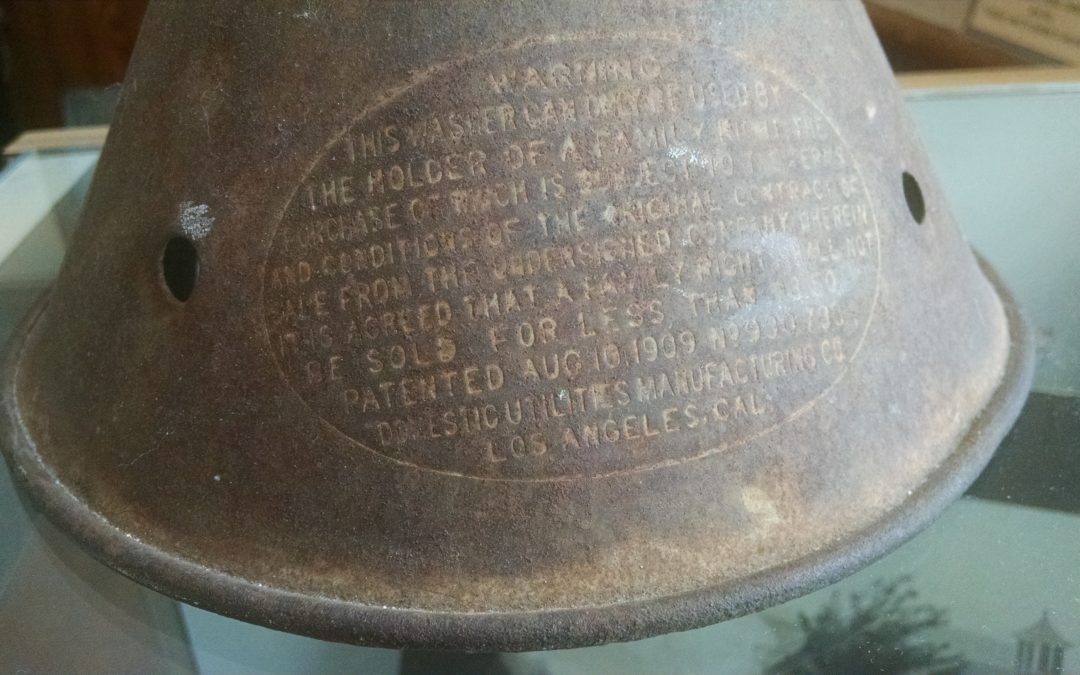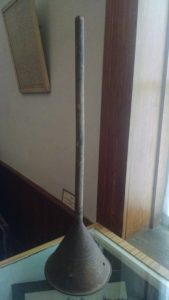NOTE: Subscribers to my free newsletter saw this last week. You can subscribe via a webform at bit.ly/monitornewsletters
Don’t you just hate software licenses and the way they mean you don’t really own the things you buy? Of course you do, and you also think they’re an outrageous result of the digital revolution.
That’s what I thought, too, until I looked closely at this object in my town’s museum:
It’s a metal plunger patented in 1909, made by Domestic Utilities Manufacturing Co. of Los Angeles to help you wash clothes in pre-electric-motor days. Instead of using your hands to scrub shirts and sheets against a washboard, you used this to plunge them up and down in the washtub. (It has some extra metal stuff inside the cone, allegedly to help the action.)
Ho hum, right? But check out the company notice written on the cone, which is shown in the big photo at the top of this item. Here’s what it says:
“Warning: This washer can only be used by the holder of a family right, the purchase of which is subject to the terms and conditions of the original contract of sale from the undersigned company wherein it is agreed that a family right will not be sold for less than $3.50.”
What does that look like? It looks like a software license, that’s what! Just like a software license, it’s an attempt by a corporation to keep up the prices of its product, limiting their use by people who didn’t pay them directly and limiting their resale. It’s a laughably useless attempt, of course, but the thinking is exactly the same as the thinking behind Digital Rights Management on movies and audio books, or software-based limitations on farm-equipment repair. We haven’t really bought the thing we’ve bought, we’ve only obtained limited rights to use it.
Plus ça change, plus c’est la même chose



 Return to the Concord Monitor
Return to the Concord Monitor